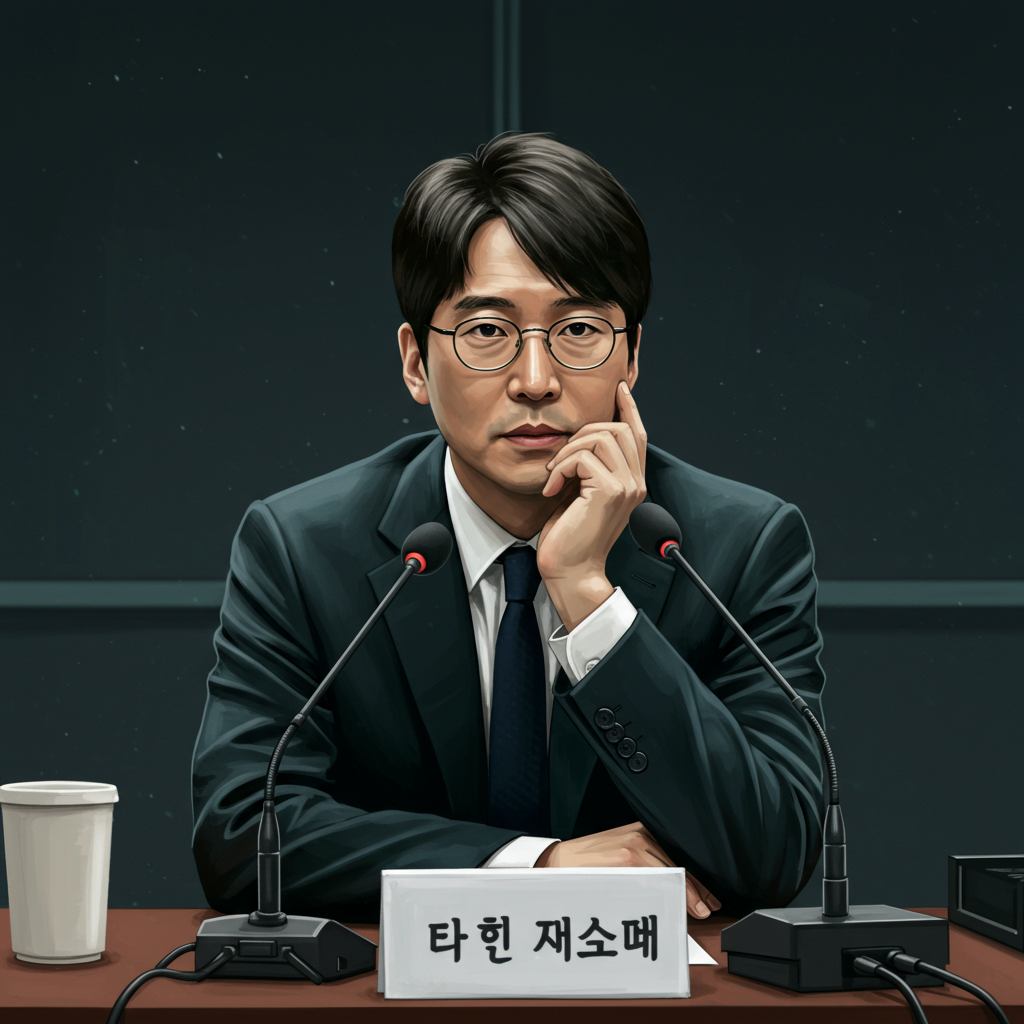The saga of Netflix’s global phenomenon, ‘Squid Game’, has reached its dramatic conclusion with the release of the third and final season. For years, audiences have speculated about the ultimate fate of protagonist Seong Gi-hun and whether the brutal Games would truly end. Now, the show’s visionary creator, hwang Dong-hyuk, is finally revealing the intense creative process, the devastating conclusion for his hero, and the surprising potential (or lack thereof) for future stories in the ‘Squid Game’ universe. This final chapter delivers stark commentary on contemporary society wrapped in its signature high-stakes survival thriller format, leaving an indelible mark on viewers worldwide.
The Epic Conclusion: Unpacking the ‘Squid Game’ Season 3 Ending
The final season of ‘Squid Game’ brought the story of Seong Gi-hun, the reluctant winner of the first games, to a definitive end. Creator Hwang Dong-hyuk had promised a three-season arc, and the finale, titled “Humans are…”, delivered on that pledge, albeit with a tragic twist for Player 456.
Gi-hun, who returned to the games in seasons two and three driven by survivor’s guilt and a desperate desire to dismantle the organization, doesn’t make it out alive this time. Despite his valiant efforts throughout the season, which saw him navigate complex alliances and internal struggles, his journey culminates in a profound sacrifice during the brutal “Sky Squid Game” final round.
In a devastating turn, Gi-hun forfeits his own life to ensure the survival of a newborn baby. This infant, whose mother (Jun-hee, Player 222) and father (Lee Myung-gi, Player 333) both perished in the games, takes on the role of Player 222. By refusing to initiate the final challenge, Gi-hun allows the baby to become the ultimate winner of the third season, the sole survivor among all players introduced across the second and third installments.
This ending encapsulates a core duality Hwang sought to portray: profound bleakness contrasted with a glimmer of hope. The games’ inherent cruelty persists, yet a new generation is given a chance to survive, largely due to Gi-hun’s ultimate act of selflessness.
Gi-hun’s Journey Ends: Creator on the Protagonist’s Fate
Crafting the final moments for Seong Gi-hun presented the biggest creative hurdle for Hwang Dong-hyuk. After failing a rebellion and losing crucial allies in the second season, Hwang wanted to explore Gi-hun’s psychological depths even further in season three.
The immense guilt and tragedy from the rebellion consume Gi-hun, pushing him to a breaking point. This internal torment is projected onto another player, leading Gi-hun to commit a violent act for the first time, an “irreconcilable original sin,” as described by the creator.
Hwang explained that the core challenge was deciding “how far did I want to throw Gi-hun down the pit, and then from where do I make him rise up again?” Depicting this complex character arc, from immense guilt and fallibility to his final redemptive sacrifice, was the most difficult aspect of writing the conclusion. Hwang expressed hope that audiences would understand and support the path Gi-hun ultimately took.
Beyond the Island: Surviving Characters and Future Hints
While the island facility hosting the games meets a fiery end, blown up by the enigmatic Front Man, not everyone is lost. Detective Hwang Jun-ho, the Front Man’s brother who infiltrated the organization, survives the destruction along with his helper, Choi Woo-seok.
In a surprising move, the Front Man leaves the victorious baby (Player 222) and the 45.6 billion won prize money from the third season’s games in Detective Jun-ho’s care. This leaves room for speculation about the future of these characters and the immense wealth they now possess.
The Front Man himself also survives and is later seen in Downtown Los Angeles, suggesting the organization’s reach extends far beyond the remote island.
Global Games? The Cate Blanchett Cameo and Spinoff Talk
The final scene of the series delivers a significant hint about the potential future of the ‘Squid Game’ universe. In a post-credits sequence, the Front Man encounters a new Recruiter in Los Angeles. This figure is revealed to be played by Oscar-winning actress Cate Blanchett in a surprise cameo.
Blanchett’s character is shown recruiting an American player, strongly suggesting that the deadly games are expanding, potentially with a version operating in the United States or on an international scale.
Despite this tantalizing setup, creator Hwang Dong-hyuk stated in his interview that the ending wasn’t specifically designed to launch a direct continuation “at this time.” He feels the main story concludes effectively and doesn’t necessarily require a follow-up from the finale’s events.
If he were to revisit the franchise for a spinoff, Hwang expressed a preference for exploring the time gap between seasons one and two or delving into the backstories of other players and guards. This suggests that while the world of ‘Squid Game’ might expand, it might not pick up immediately where the main series left off. Reports of director David Fincher developing an English-language spinoff for Netflix were noted, although sources indicated it wasn’t tied directly to the final scene setup.
Modern Society Reflected: Themes of Voting, VIPs, and the Baby
Hwang Dong-hyuk infused the later seasons of ‘Squid Game’ with themes directly inspired by contemporary global events. The new voting aspect introduced in seasons two and three, where players repeatedly vote to continue participating despite the horrific cost, reflects his observations on election conflict and societal division.
Hwang noted the increasing extremism in political discourse, where tolerance for differing views has diminished. He pointed to the influence of populism, propaganda, and algorithmic news consumption as factors leading to people being misled and reinforcing rigid, ‘us vs. them’ mentalities. This stark reality of people seemingly voting against their own best interests was a core idea he wanted to explore.
Furthermore, the role of the VIPs was significantly expanded in the third season. Hwang felt this reflected a shift in real-world power dynamics, where those controlling politics and society are becoming more overt. Previously hidden figures are now more open about their influence and financial backing of decisions, connecting to themes of anti-oligarchy movements and the increasing visibility of power structures.
The introduction of a pregnant player and her baby was a deliberate risk to raise the emotional stakes for the finale. For Hwang, the baby represents more than just a high-stakes plot device. It symbolizes human conscience and the future generation. Just as previous generations strived to create a better world for the present, the current generation has a responsibility to fix societal flaws for those who come after. The baby embodies this hope and the reason for collective struggle.
Behind the Scenes: The Toll of Creation and Game Challenges
Bringing ‘Squid Game’ to life was a demanding process, taking a significant personal toll on its creator. Hwang Dong-hyuk revealed the immense pressure he faced, which famously led to losing teeth while making the first season and again during the final season.
Keeping the finale’s secrets tightly guarded was a constant challenge, with Hwang navigating rumors, fake news, social media speculation, and direct questions from people around him. The relief of the show’s release was palpable.
However, saying goodbye to ‘Squid Game’ after six years of it “completely consuming” him left Hwang with a sense of loss and emptiness. He expressed hope that the third season receiving as much love as the first would help alleviate this feeling.
Creating the elaborate games themselves presented distinct challenges. While psychological games like “Hide and Seek” and “Sky Squid Game” were difficult to write due to their intricate nature, filming games like “Jump Rope” demanded significant technical effort. Coordinating actors, incorporating extensive CGI for height and the rope itself, and adding sound effects required immense manpower and time, resulting in the visceral experience viewers witnessed.
Frequently Asked Questions
How did Seong Gi-hun’s story conclude in the final ‘Squid Game’ season?
In the third and final season of ‘Squid Game’, protagonist Seong Gi-hun sacrifices himself during the ultimate game to ensure the survival of a newborn baby who became a contestant. Despite winning the deadly challenges in season one and returning to fight the system, Gi-hun’s journey ends with his death, allowing the baby to become the official winner of the season’s games.
What do the themes of voting and the VIPs represent in ‘Squid Game’ Season 3, according to the creator?
Creator Hwang Dong-hyuk used themes of voting and the VIPs in Season 3 to reflect current global events. The voting element illustrates increasing political division and extremism, where people vote against their own interests due to propaganda and lack of tolerance. The expanded role of the VIPs symbolizes Hwang’s view that real-world oligarchs controlling society are becoming more overt and revealing their influence.
What are the chances of a ‘Squid Game’ spinoff, and what kind does the creator prefer?
The final scene hints at a potential ‘Squid Game’ expansion with a recruiter in the US, but creator Hwang Dong-hyuk feels the main story is complete and doesn’t require a direct continuation from the finale. If a spinoff were to happen, he would prefer to explore the time gap between season one and two or the backstories of other players and guards, rather than a story following the main series’ conclusion.
A Concluding Chapter
The end of ‘Squid Game’ marks the close of a cultural phenomenon that captivated millions with its potent blend of thrilling survival drama and biting social commentary. Hwang Dong-hyuk’s intense six-year journey to tell this story, culminating in a divisive but meaningful conclusion for his central hero, leaves viewers with much to contemplate.
From the cyclical nature of the games hinted at by the post-credits scene to the powerful symbolism of the child winner representing future generations, the finale offers layers of interpretation. While the door might technically be open for future stories, particularly exploring the history of the games, the primary narrative feels definitively concluded. The conversation starter ignited by ‘Squid Game’ about inequality, human nature, and systemic cruelty will undoubtedly continue long after the final credits roll.
Word Count Check: 1190



